3 December 2015
185 Civil Society activists and 40 organisations have today urged the respective authorities to take all possible measures to revoke the death sentence and ensure the migrant worker’s safe return to Sri Lanka.
A 45 year old, unnamed Sri Lankan migrant domestic worker and mother of 4 has been sentenced to death by stoning in Saudi Arabia for ‘adultery.’
We publish below the statement in full;
Death Sentence Imposed on a Sri Lankan Migrant Worker in Saudi Arabia
We the undersigned express our deep dismay and distress that as a yet unnamed Sri Lankan housemaid living in Saudi Arabia has been found guilty of adultery and has been sentenced to death by stoning.
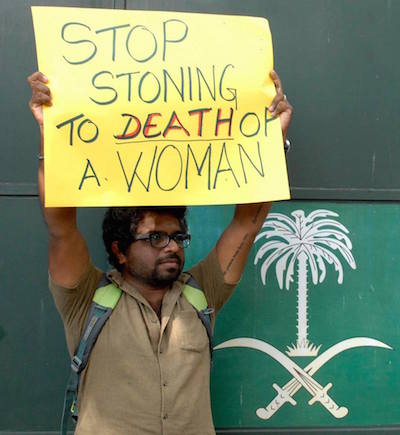 According to newspaper reports, a court in Riyadh sentenced the woman, reportedly a mother of two, based on her confession. The male worker involved in the case who has been found guilty of fornication (as he is not married) has been given a sentence of 100 lashes. Little is known of the circumstances of the case; generally these cases are difficult to prove as it must be corroborated by four male witnesses or eight female witnesses. However since the woman pleaded guilty the case has been exempted from this standard of proof.
According to newspaper reports, a court in Riyadh sentenced the woman, reportedly a mother of two, based on her confession. The male worker involved in the case who has been found guilty of fornication (as he is not married) has been given a sentence of 100 lashes. Little is known of the circumstances of the case; generally these cases are difficult to prove as it must be corroborated by four male witnesses or eight female witnesses. However since the woman pleaded guilty the case has been exempted from this standard of proof.
In response to the conviction, the Sri Lanka Bureau of Foreign Employment (SLBFE) and the Ministry of Foreign Employment has expressed concern and instructed the Sri Lankan Embassy in Saudi Arabia to take all steps to save the convicted woman. The SLBFE has hired a lawyer to appear on behalf of the woman in order to obtain a revocation of the death sentence. Minister Thalatha Athukorale has however noted that this would be an uphill task given that the woman has confessed to the offence.
This is the second instance that a Sri Lankan housemaid has been given the death sentence. PreviouslyRizana Nafeek was beheaded on 9th January 2013 for the alleged murder of a four-month old baby boy. Nafeek’s conviction was also based on a confession, which she later claimed was made under duress and without linguistic assistance. Following a case which dragged on for five years and despite appeals made by the government of Sri Lanka and international and local women’s and human rights organisations, the Saudi government went ahead with her execution in January 2013.
According to Amnesty International, Saudi Arabia is amongst the top three countries that implement the death penalty and the majority of those who are executed are foreign nationals convicted for non-lethal crimes such as adultery, apostasy, sorcery and witchcraft.
We appeal to THE RESPECTIVE AUTHORITIES TO take all possible measures to revoke the death sentence and ensure the migrant worker’s safe return to Sri Lanka. We EARNESTLY call on you to expeditiously bring to bear all possible means to ensure that the migrant worker is granted justice. We further call on you to ensure that Sri Lankan migrant workers are granted all possible support and protection to ensure their human rights.
Sincerely
Action Network for Migrant Workers (ACTFORM)
Centre for Policy Alternatives
Centre for Social Concerns, Jaela
Ceylon Workers Red Flag Union
Citizens Voice for Justice and Peace
Domestic Workers Union
Families of the Disappeared
Kantha Shakthi Forum
Lanka Estate Workers Union
United Federation of Labour
Lawyers Collective for democracy
Muslim Women’s Research and Action Forum
Red Flag Women’s Movement
Rights Now
Rural Women’s Front, Galle
Savisthri Women’s Movement for Justice
Sri Lanka Women’s NGO Forum (SLWNGOF)
Suriya Women’s Development Centre, Batticaloa
Trikone Cultural Centre
Woman’s Power
Women and Media Collective (WMC)
Women In Need
Women’s Resource Center, Kurunegala
Association for War Affected Women, Kandy
Christian Workers fellowship (CWF)Women Action Network, Jaffna
Future In Our Hands
The Grassrooted Trust
Coalition for Educational development
SAHODARATHWA SANSADAYA
Christian Alliance for Social Action (CASA)
Centre for Peacebuilding and Reconciliation
Inter Relligious Federation of Ampara District (IRFAD)
Al Minan Women’s Society – Kalmunai
Fathima Women’s Society – Central Camp
Nisha Women’s Society Kalmunai
Ambikai Women’s Society – Central Camp
Malar Villy Society Central Camp
Sivasakthi Women’s Society Central Camp
Ina Ottrumaikana Pengal Abiviruthy Ondriyam Central Camp
Women’s Political Academy
Amal Mohamed
Amita Weerasinghe
Ameena Hussein
Anberiya Hanifa
Ann Jabbar
Ainslie Joseph
Annie Kurian
Anoma Alankara
Anoma Manoranjani
Aparna Gurusinghe
Aasha
A.H.H.Aqila
Asma Jabir
Arafa Jaleel Khan
Azra Abdul Cader
Balachandran Gowthaman
Balasingham Skanthakumar
Bhavani Fonseka
Bhoomi Harendran
Britto Fernando
Camena Gunaratne
Chandani K.A Malagammana
Chandralal Colombage
Cayathri. D
Caryll Tozer
Chandrika Gadiewasam
Christine Perera
Chulani Kodikara
D.R.Jayathilake
David Gunaratnam
Damaris Wickremesekera
Deeptha Bandara
Dhammika Karunaratne
Dharmasiri Bandaranayake
Dinushika Dissanayake
Elanda Delwala
Faizun Zackariya
Fahrun Muthalif
Farzana Jaleel Khan
Florine Marzook
G.W.Padmaseeli
Gamini Ruberu
Gamini Viyangoda
Gehan Gunatilleke
Geethika Rupasinghe
Gratian A. Peiris
H.M. Subharatne Menike
Harini Amarasuriya
Hans Billimoria
Hilmy Ahamed
Hishama Matheen
Hemalatha
H.Nuwaiza
Hyshyama Hamin
Iman Mohamed
Indra Swarnaseeli
Inshira Laffir
Irina Jabir
Jagath Siriwardena
Dr. Jameel,
Jezima Ismail
Jailabdeen Shiam
Prof. Jayantha Seneviratne
K.A.Jayasinghe Perera
J. Madanaruby
Kalani Subasinghe
Kumudini Samuel
K.Nishanthini
K.Wijeyluxmy
K. Vinoja
K.L.M.Azeez
Fr Kirubairajah
Kusum Siriwardena
Lesley Sirimane
Leila Udayar
Lallani Kalupahans
Linus Jayathilaka
Dr L Solomons
Dinoo Mumthahana J.
M. Indrawathi
Mahendran Thiruvarangan
Maithree Wickramasinghe
Marisa de Silva
Mahinda Jayawardena
Mala Dissanayake
Mary Heather White
Menaha Kandasamy
Menike Wannisooriya
Melisha Yapa
Mirak Raheem
Mohamed Nuhman
Mujeebur Rahman
M.M.Jenita
M.S.Thevagowry
Nayagara Jinadasa
Nadira Salih
Neil Priyantha Fernando
Nimalka Fernando
Noorul Zaniha Jainulabdeen
N. Zairina Ariff
Nishani Punchihewa
Nirmalani Perera
Nimnaz Jabir
Padma Pushpakanthi
Paba Deshapriya
Pavithra Sajeevani
Philip Setunga
Piyumi Tharaka
Priyadarshanie Ariyaratne
Prabha Gurusinghe
P.Selvaratnam
Preethika Weerawansa
Premapala Hewabatage
Prema Gamage
Paul Hogan
Ranga Bandaranayake
Rajee Clerk
Ralston Weinman
Ramzeen Azeez
Rani Jayasinghe
Ranjani Mallika
Ratna Sandaseeli
Rajany. C.
Rev. Jason J. Selvaraja, Assembly of God, Chavakachcheri
Rev. M. V. E. Ravichandran, Jaffna Diocesan Catholic Youth Federation
Riyani
Rikaza Laffir
Rohini Dep Weerasinghe
Rohini Hensman
Roshani Fernandopulle
Ruki Fernando
Rushdi Zackariya
Ruwendi Wakwella
R.Logitha
S. Ananthi
S.G.Nishanthini
Sathyavani
Sandya Salgado
Savithri Wijesekera
Sepali Kottegoda
Selvi Sachithanandam
Shafinaz Hassendeen
Shreen Saroor
Sampath Samarakoon
S.A.M.Jabir
S. R. H. Hoole
S.Unesh Kunalan
Sheila Richards
Shirani Rathnaweera
Shiromi Pathirana
Sithy Nabeesa Deen
Shyamala Gomez
Shyamala Sivagurunathan
Shamini
Shafnaaz Harees
Silma Mohideen Ahamed
Sriyani Pathirage
Sriyanie Wijesundara
Sudarshana Gunawardene
Sunil Ranasinghe
Sumi Kerison
Supipi Jayawardena
Smriti Daniel
Shiranee Dissanayake
S. Rubiya
Tanuja Thurairajah
T. Chandramohan
Thiagi Piyadasa
Thilaka Liyanage
Thissanthini
U.P.M Pathirana
U.L.Hafeela
U.L.Sameena
U.L.Hassen
Udeni Thewarapperuma
Yasmin Azeez
Vasuki Jeyasankar
Vasanthagowri
Visaka Dharmadasa
Viola Perera
Visaka Bandaranayake
W.A. Dayani
Wasantha Dissanayake
Zuhri Zackariya
Zulfika Ismail
Reposted from: Colombo Telegraph





 Nilgün Yıldırım Şener of the Human Resource Development Foundation (İKGV) stated that sexual violence is used as a method of war between the fighting parties in Syria. Giving examples from the cases they encounter in the counseling center for Syrian asylum-seekers set up in Esenler, İstanbul, Şener stressed that 10 out of every 100 asylum-seekers applying to the center have been subjected to sexual violence. She said that among the case files opened at the center during the January-July 2015 period, 89 of the sexual violence victims were women, 37 men, and 9 were LGBTI individuals. Delivering a summary of the sexual and bodily rights violations of women and LGBTI, Şener underlined that housing is the gravest problem along with the very widespread fear of harassment and rape. She also talked about the prevalence of major problems such as the constantly changing practices regarding access to health care services, and the impossibility of access to services such as birth control and abortion.
Nilgün Yıldırım Şener of the Human Resource Development Foundation (İKGV) stated that sexual violence is used as a method of war between the fighting parties in Syria. Giving examples from the cases they encounter in the counseling center for Syrian asylum-seekers set up in Esenler, İstanbul, Şener stressed that 10 out of every 100 asylum-seekers applying to the center have been subjected to sexual violence. She said that among the case files opened at the center during the January-July 2015 period, 89 of the sexual violence victims were women, 37 men, and 9 were LGBTI individuals. Delivering a summary of the sexual and bodily rights violations of women and LGBTI, Şener underlined that housing is the gravest problem along with the very widespread fear of harassment and rape. She also talked about the prevalence of major problems such as the constantly changing practices regarding access to health care services, and the impossibility of access to services such as birth control and abortion.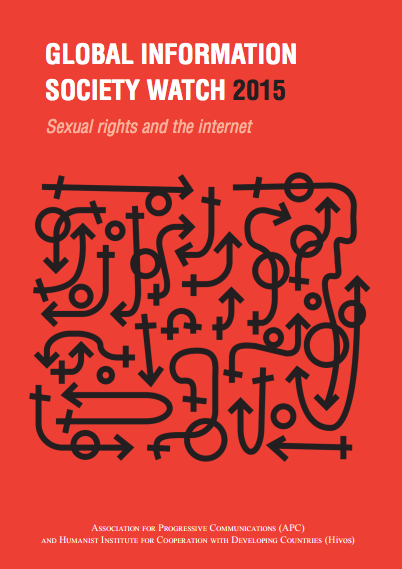

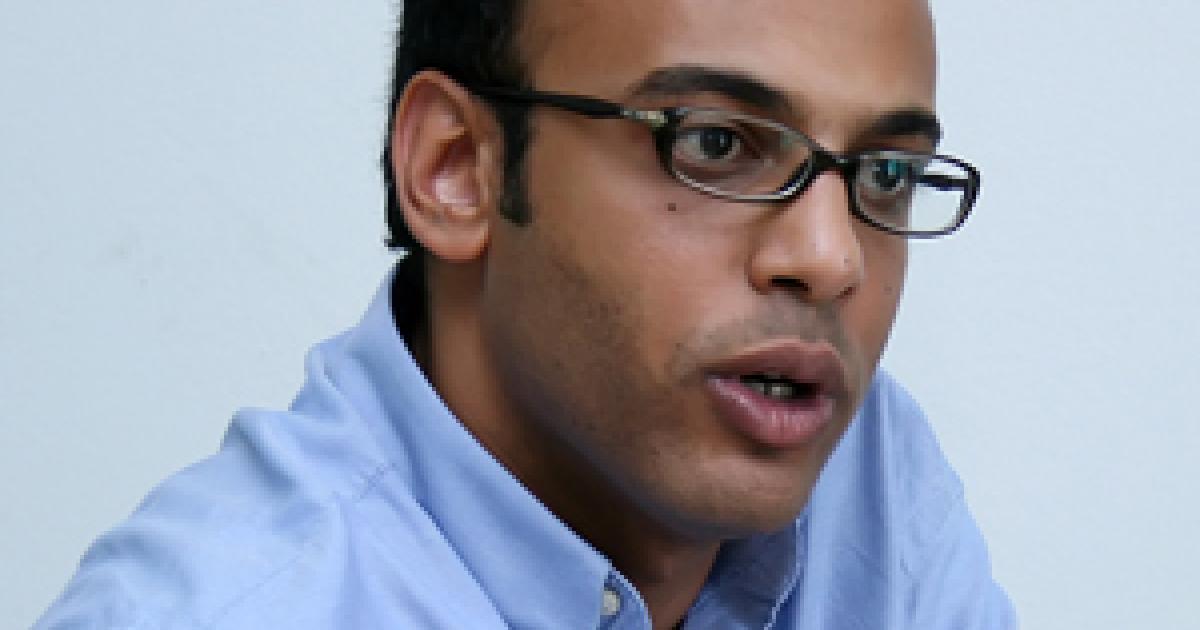
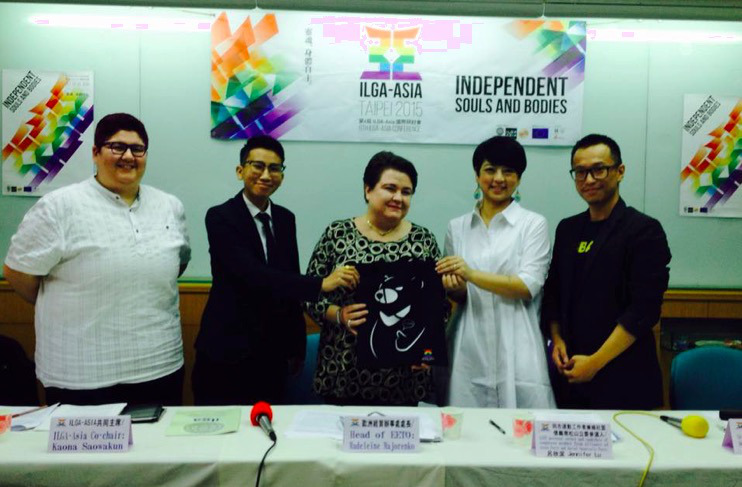

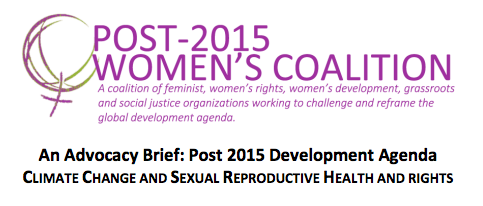 September 2015
September 2015 

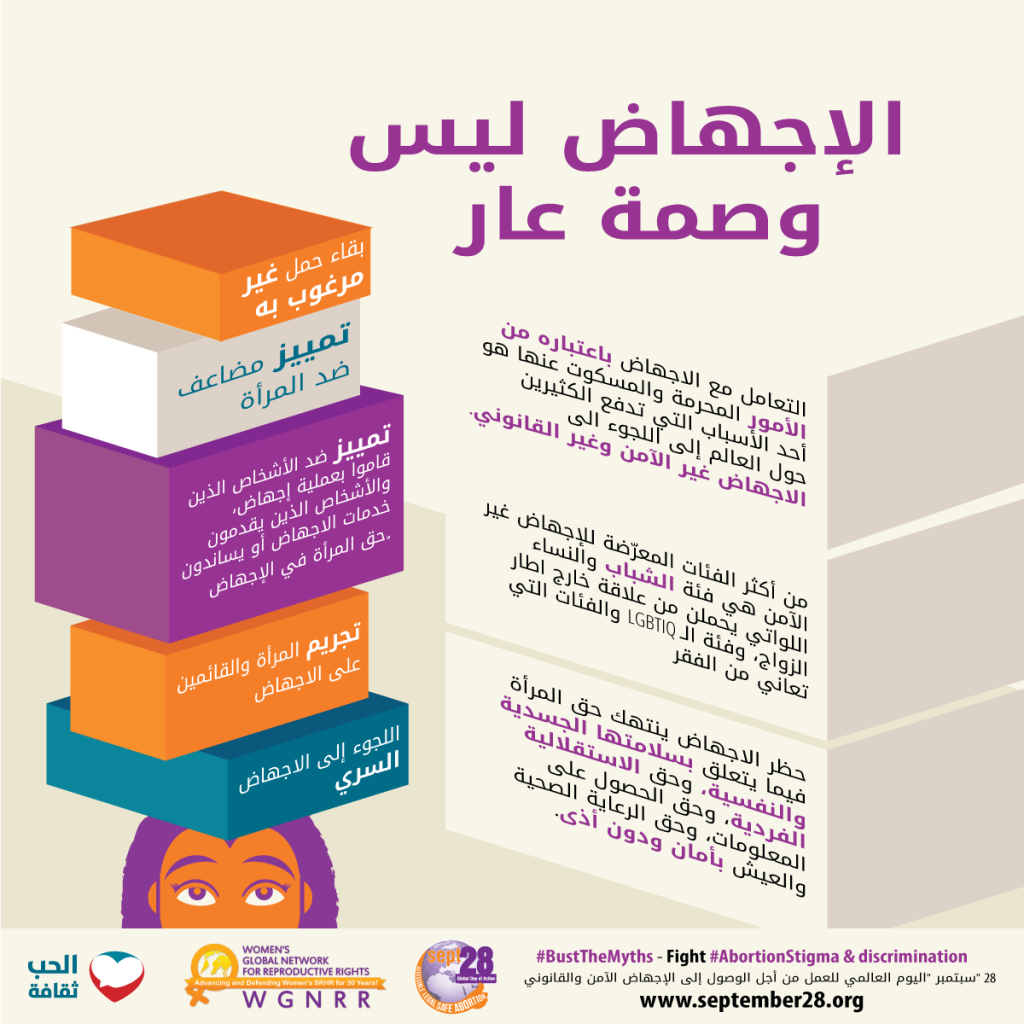
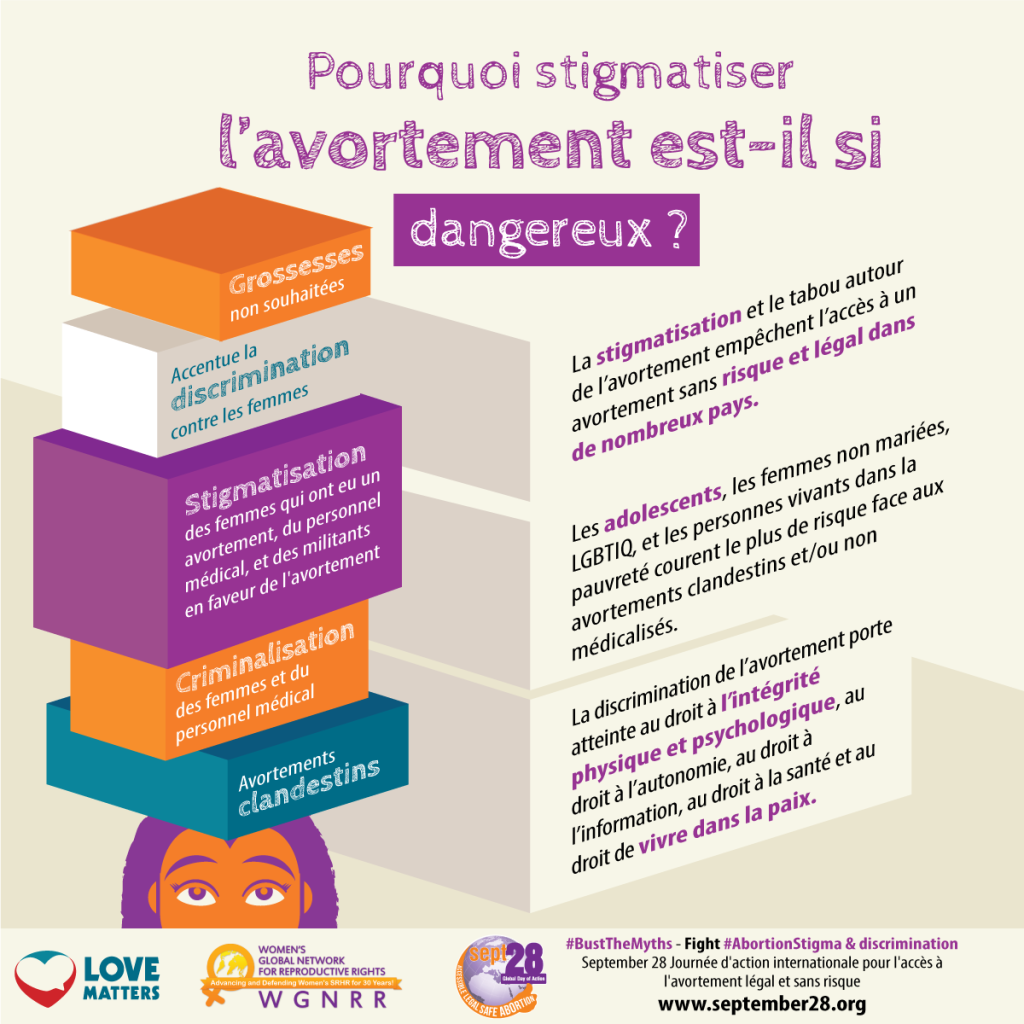
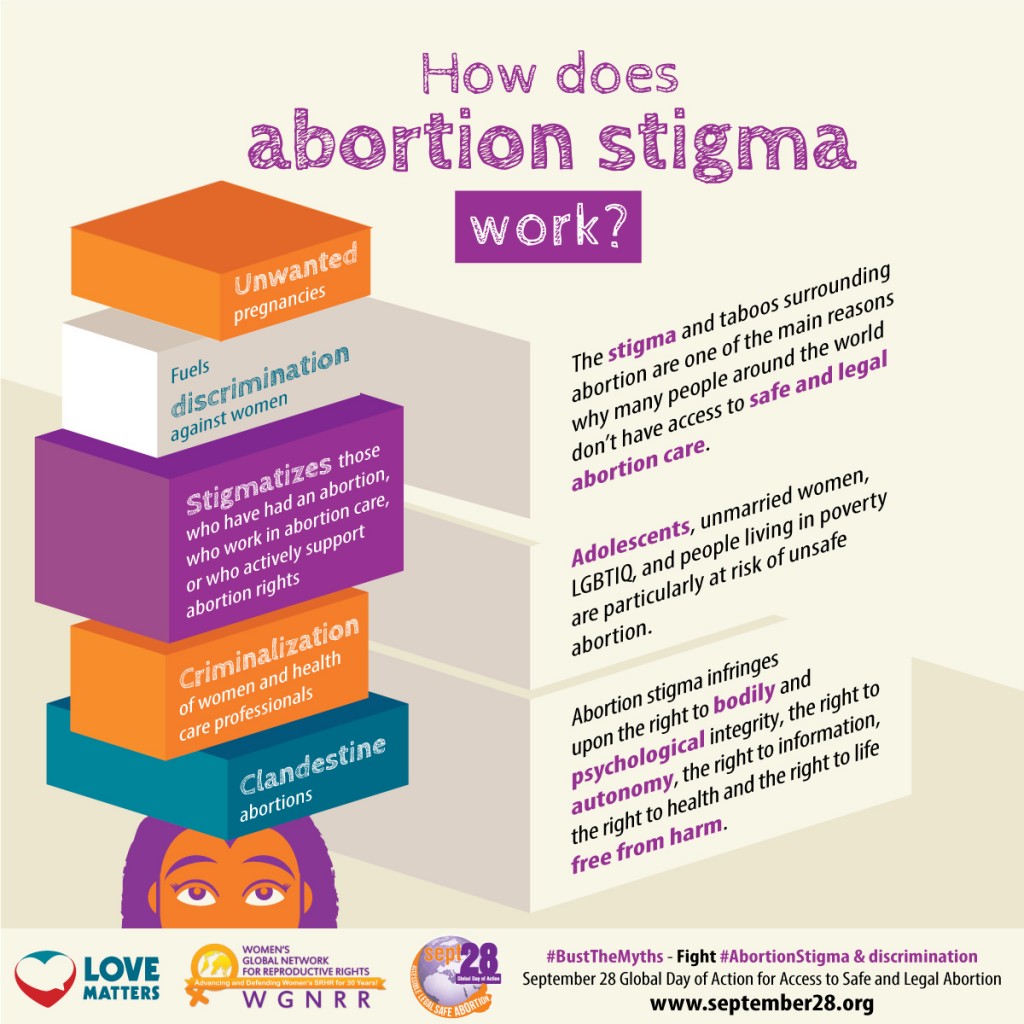
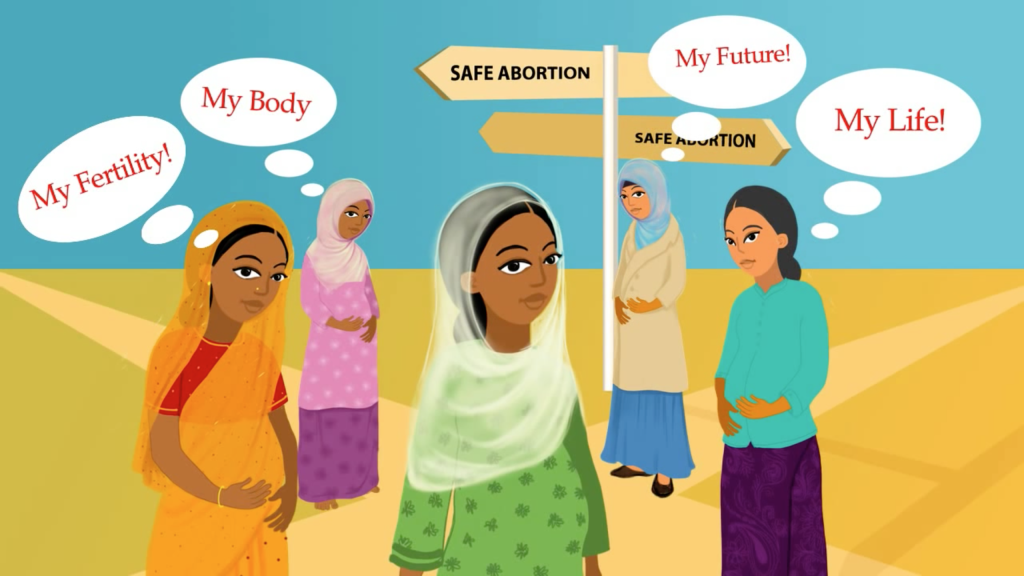
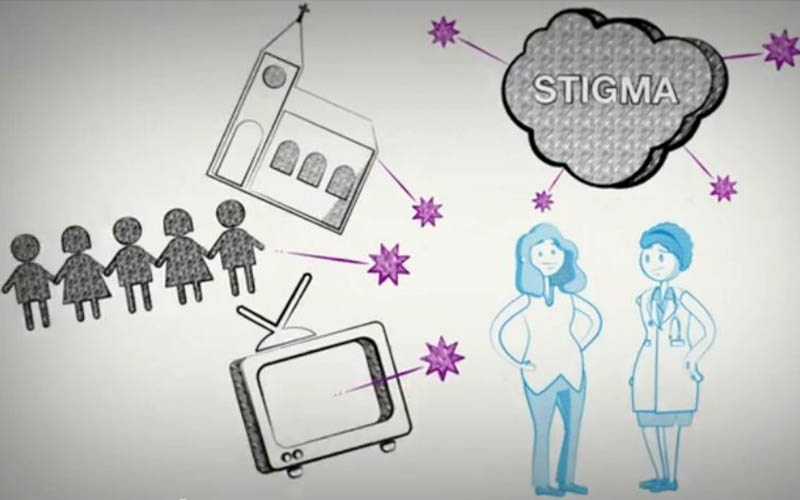
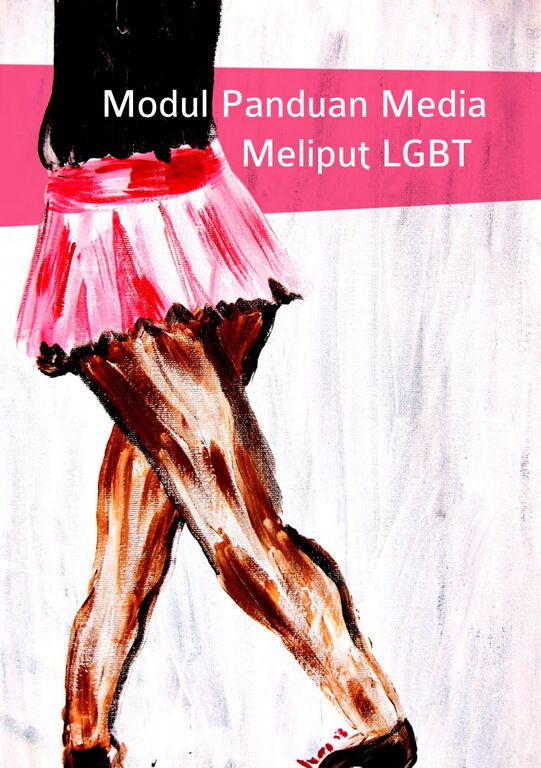
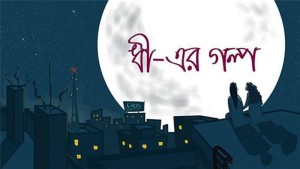




 “He was a caring and kind-hearted guy. But blame it on my immaturity, I lost my virginity to him as we started having sex, or to be more precise – unprotected sex. We met each other almost every day and we were almost inseparable. After seven months of us being together, I began to feel really weird,” Elisa recollected.
“He was a caring and kind-hearted guy. But blame it on my immaturity, I lost my virginity to him as we started having sex, or to be more precise – unprotected sex. We met each other almost every day and we were almost inseparable. After seven months of us being together, I began to feel really weird,” Elisa recollected.